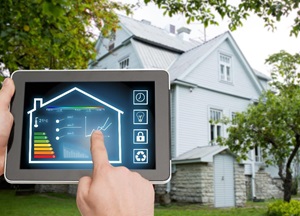- the Internet of Things
- The Smart Home
- Building Innovations
- Cybersecurity
Speculation Over Smart Home Technology

Over the holidays, I received my first personal assistant. Her name is Alexa, and despite the latest hype and commercial appeal, my virtual assistant remains in her box, lifeless and unused. I have reservations about engaging with a smart device that was programmed to listen, track, and record my personal habits in the privacy of my own home. According to recent consumer reports, these misgivings are common. In fact, over a third of Americans are uncomfortable using smart technology as privacy policies fail to address ongoing security issues. For some users, the convenience of voice-controlled devices, like the Amazon Echo and Google Home, is shadowed by security concerns. Data leaks and recent reports of hackers gaining access to home devices and speakers have not helped matters, begging the question, what do consumers stand to gain from smart home technology?
An Ecosystem of Connectivity
For starters, the ease of access to information and remote-control capabilities of home appliances have helped users save a lot of time and money. Energy efficient solutions like smart thermostats and internet-connected lights paired with other smart devices have helped consumers reduce monthly energy bills. Products like Amazon Echo act as a smart home platform for connecting various Internet of Things-enabled devices, like security cameras and remote-controlled cooking gadgets. Consumers already using some of these devices are more likely to install additional ones as they discover new tasks for machines to handle. Throw in the added convenience of a voice-activated assistant and the benefits of connected home technology start to become more convincing for even the biggest skeptic. Yet the real risk of hackers taking advantage of these features remains as the growing transfer of control from homeowners to smart devices is left unprotected.
A Silver Lining
Despite ongoing security concerns, smart technology offers consumers the opportunity to lead more efficient lives. Yet for users to reap the full benefits of these devices, privacy and security concerns must be addressed. Doing so attracts long-term buyers, securing data and customers in one fell swoop. Since innovation leads regulation, privacy policies for this technology will require continuous revitalizing. Proposals like the European Union’s cybersecurity certification framework represent steps legislators are taking to confront these issues. Vendors can also play a role by being more transparent about their offerings and educating consumers on where risks lie and how best to avoid them. Understanding how the tech works and where faults exist may convince hesitant consumers, like myself, to give it a go and take advantage of what these smart devices have to offer. For more information about smart home technology, check out Guidehouse Insights’ Digital Assistants and AI in the Home.